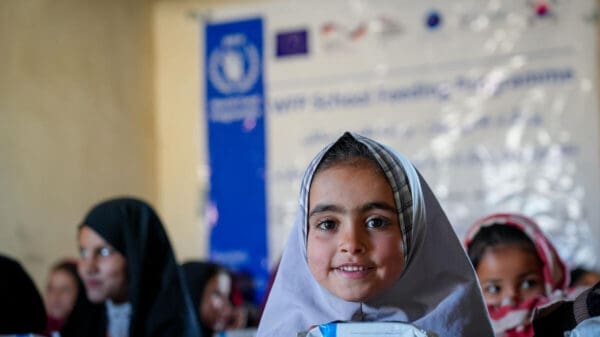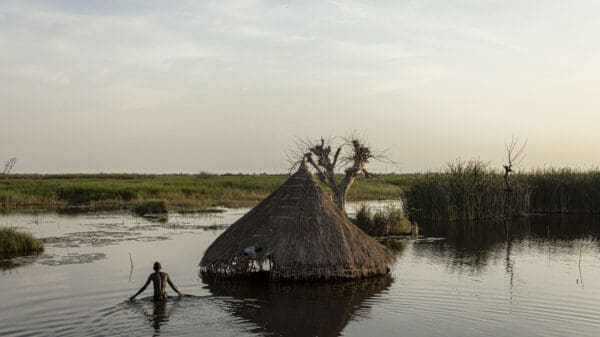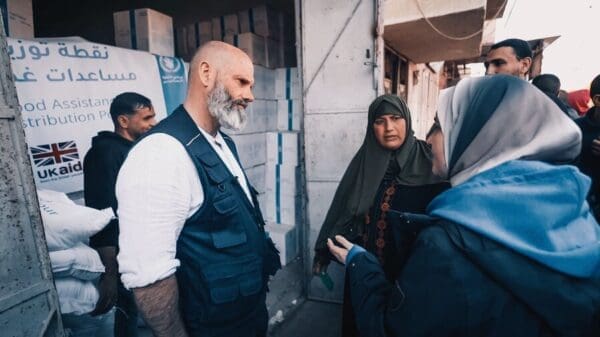In the Horn of Africa, Cash Grants From WFP Are Empowering People Living With Disabilities
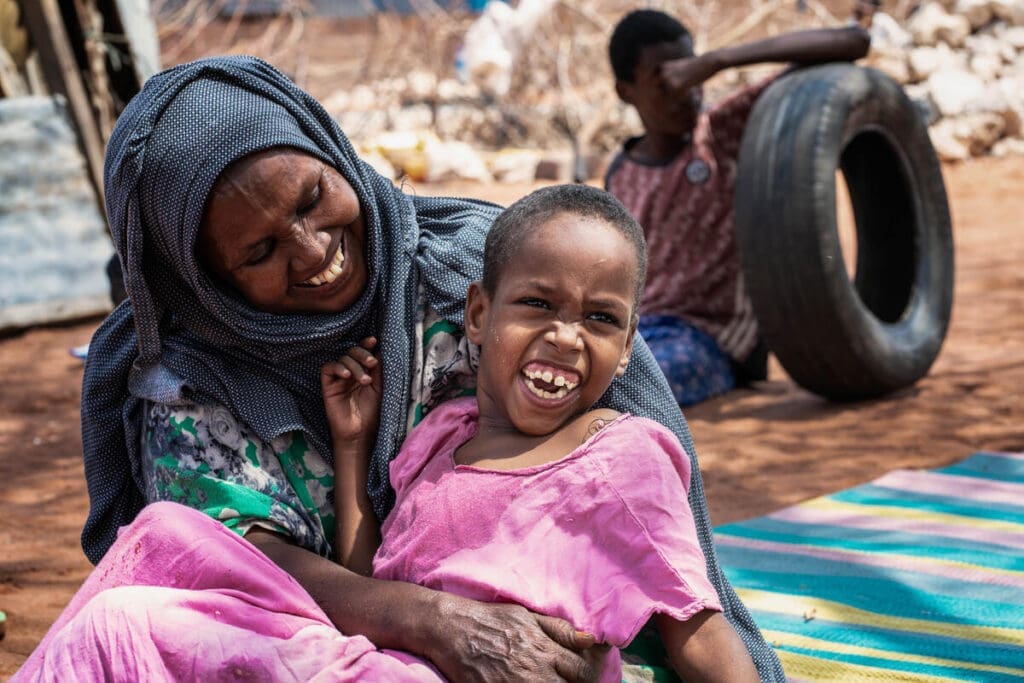
Thanks to a recently introduced law on funding for people with disabilities, the United Nations World Food Programme (WFP) is working with Wajir County authorities to support people like 8-year-old Ikran.
Ikran lives with her family in Barwako, about two miles from Wajir town – capital of one of Kenya’s poorest counties. The country is grappling with hunger caused by the severe drought in the Horn of Africa on top of the impacts of COVID-19 and spiraling costs of food and fuel.
Ikran receives a disability allowance used by her mother, Halima, to buy her the foods that suit her needs best.
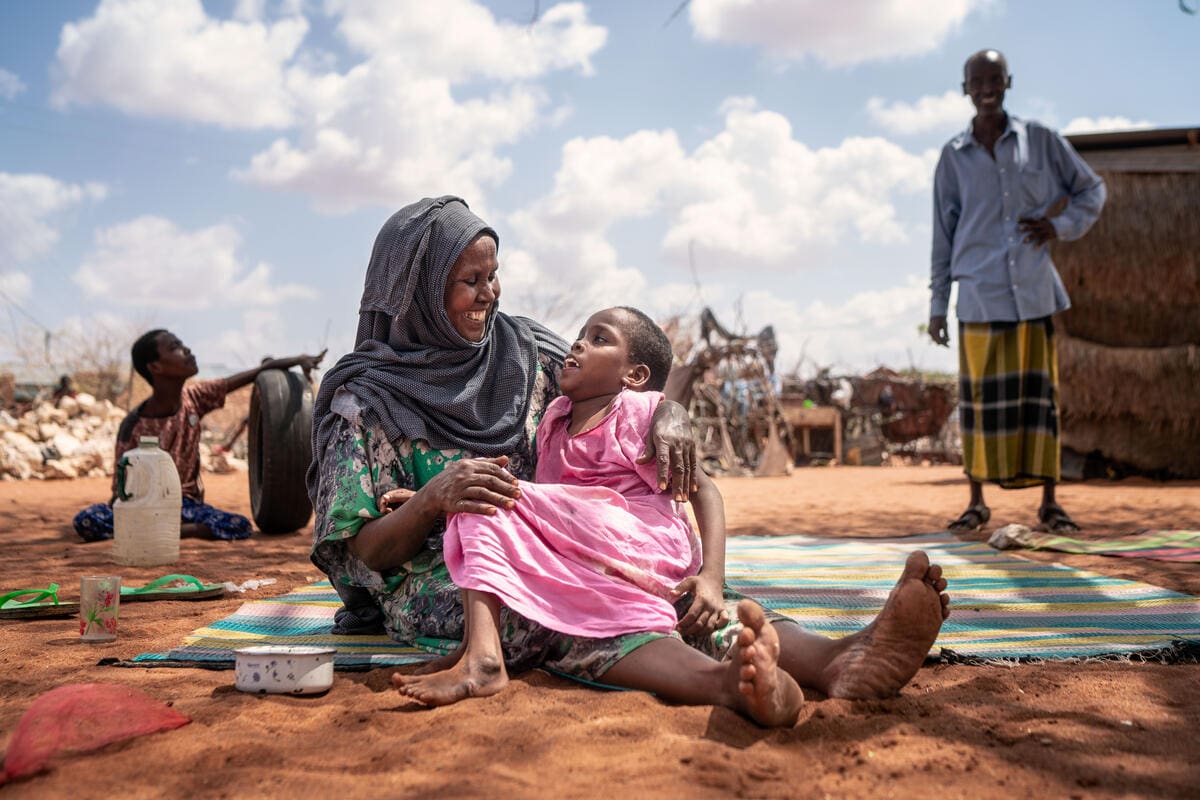
“Before disability cash transfers, life was very stressful,” Halima said.
The disability cash transfer program is a social protection measure enacted by the county government of Wajir, with support from the U.N. World Food Programme. The program aims to boost income security and improve the well-being of people with disabilities and their families.
Ikran, her twin brother Hassan and their seven siblings live in a small Somali hut known as an aqal.
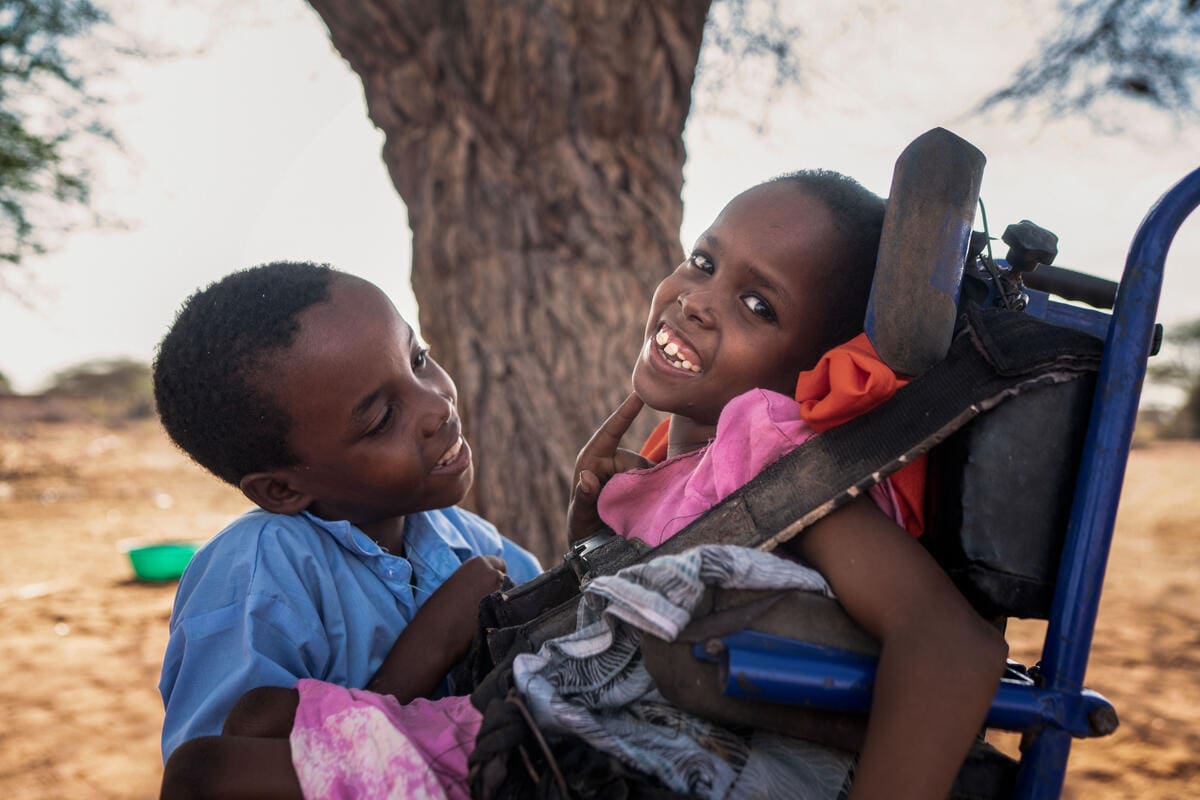
Ikran with her doting twin brother, Hassan.
Ikran is quadriplegic and Adan, her older brother, is also disabled. To support her children and her retired husband too, Halima makes and sells mandazi (a popular fried dough snack) in the school cafeteria. She also runs a small kiosk next to her hut.
Her days – a flurry of caregiving and income generating activities – start at 4 a.m. She checks up on Ikran and Adan, makes breakfast and prepares the mandazi for sale all before opening her kiosk.
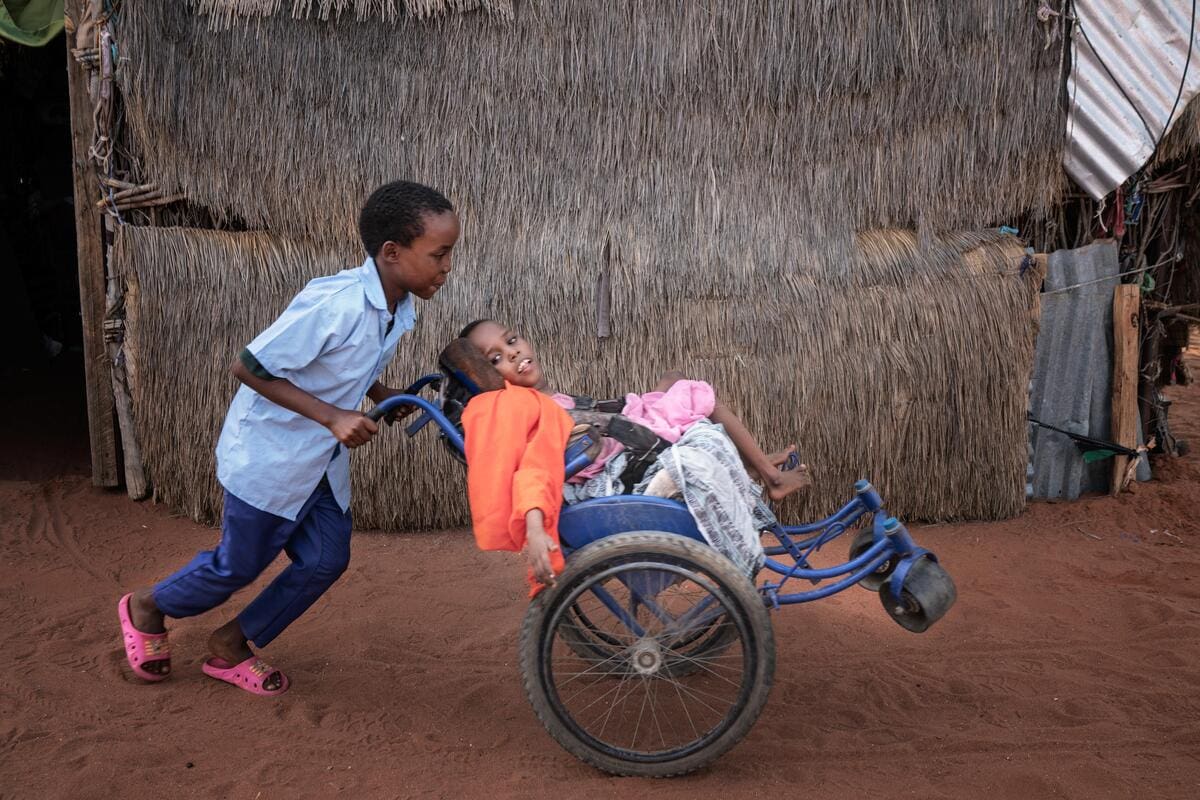
Ikran is quadriplegic and Adan, her older brother, also has a disability.
“Before disability cash transfers, life was very stressful,” she said. “Feeding a large family of nine children, two of whom that need 24-hour care on a meagre income was very challenging.”
Ikran began receiving cash transfers for two years until 2017 when the laws behind the annual budget for the disability fund were suspended. The U.N. World Food Programme stepped in, recognizing the importance of this safety net and, with support from the government of Sweden, worked with the Wajir County government to draw up the Persons Living with Disability Bill – which was passed into law last September.
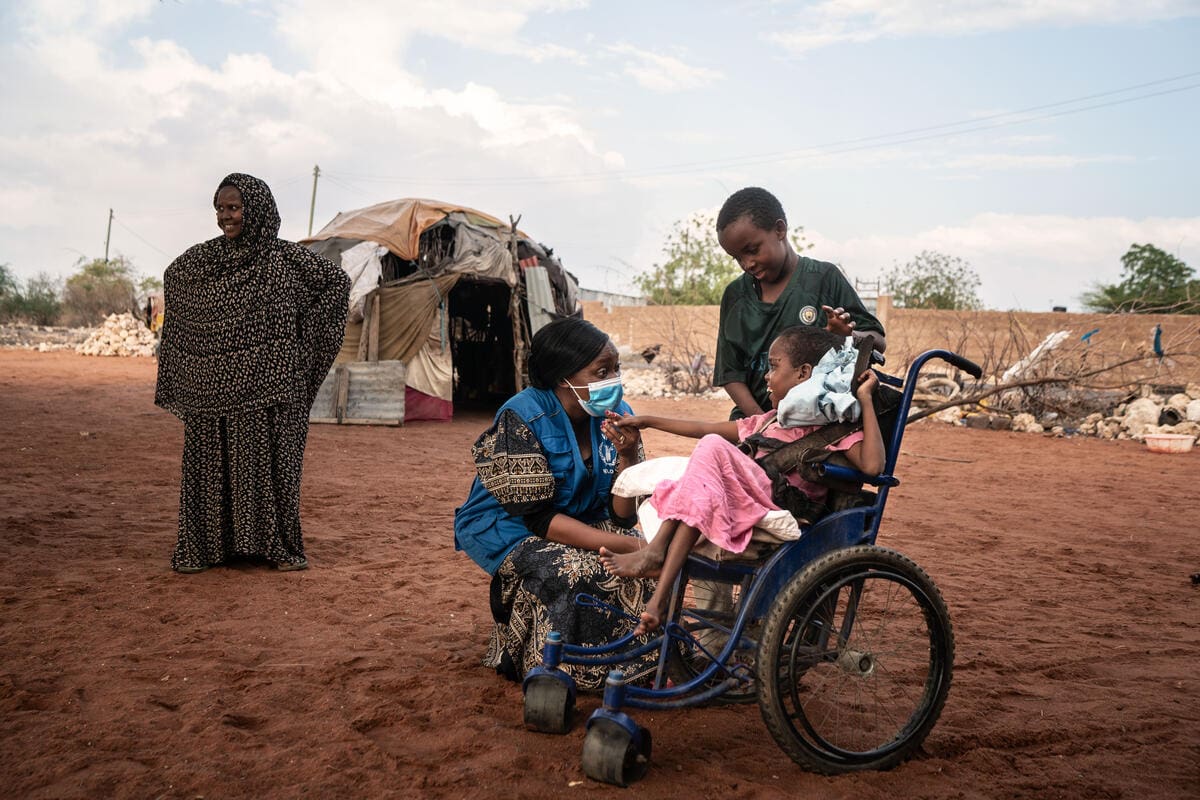
Ikran, an 8 year old girl, sits in her wheelchair and smiles at Lynette Watiti, head of WFP’s Wajir field office as her mother Halima looks on.
The U.N. World Food Programme supported the cash transfer program by:
- providing both technical and financial support to the county
- convening and facilitating the policy formulation process
- helping to facilitate the registration and selection of beneficiaries, as well as the post-payment monitoring of the cash transfers
Cash transfers resumed in August last year, with an annual budget of $123,350. Each of the 256 families currently enrolled in the program receives $35 every month.
“I used the money to buy mattresses and bedding for both Ikran and Adan,” said Halima. “I also bought some food items in bulk like rice, sugar, flour, cooking oil, corn and beans.”
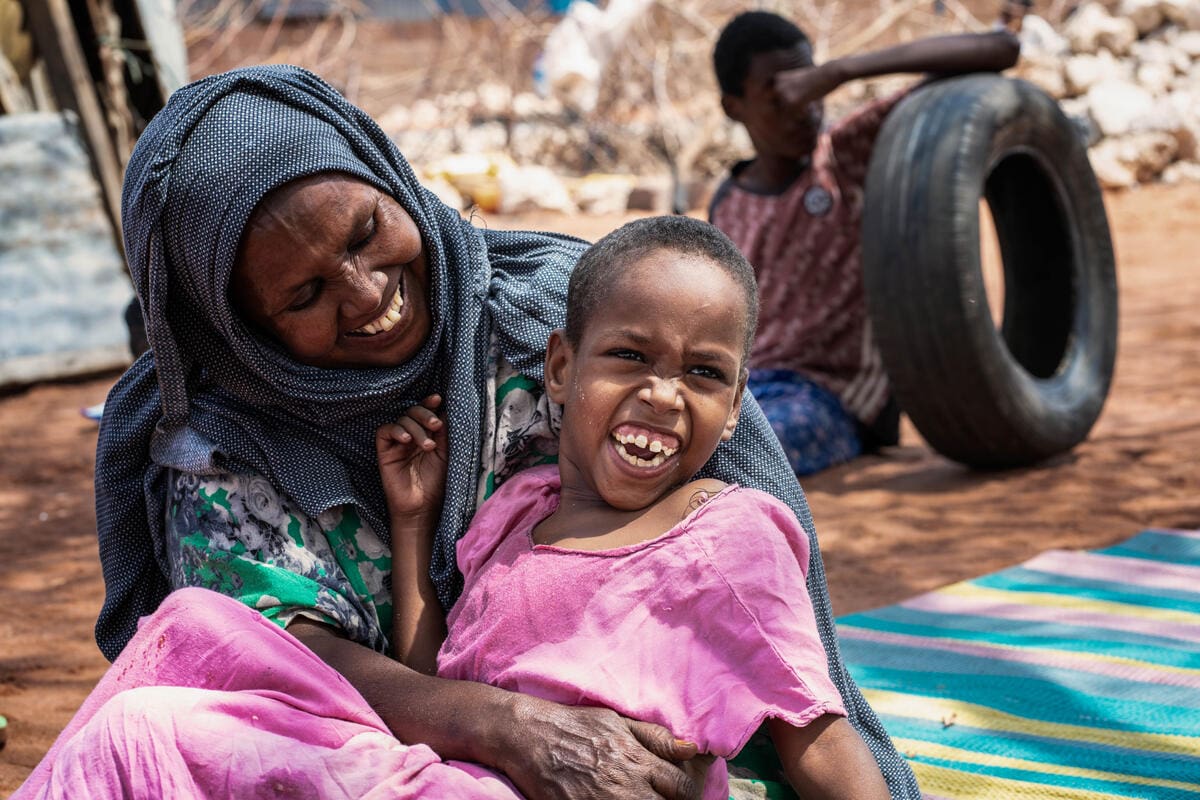
The $35 Ikran earns her family makes a huge difference.
Among the items that she buys for Ikran are disposable diapers. Before the cash transfers, Ikran would be forced to use old pieces of fabric that were unsuited to Ikran’s needs and caused her discomfort.
“The U.N. World Food Programme is happy to support county governments in strengthening policies for the benefit of those who are most vulnerable,” said Lynette Waititi, head of the U.N. World Food Programme’s Wajir office. “The Persons Living with Disability Act has enabled Wajir to allocate an additional 2% of its annual development budget to the Disability Fund.”
This story originally appeared on WFP’s Stories on February 16, 2022 and was written by Carree Ndoka.
